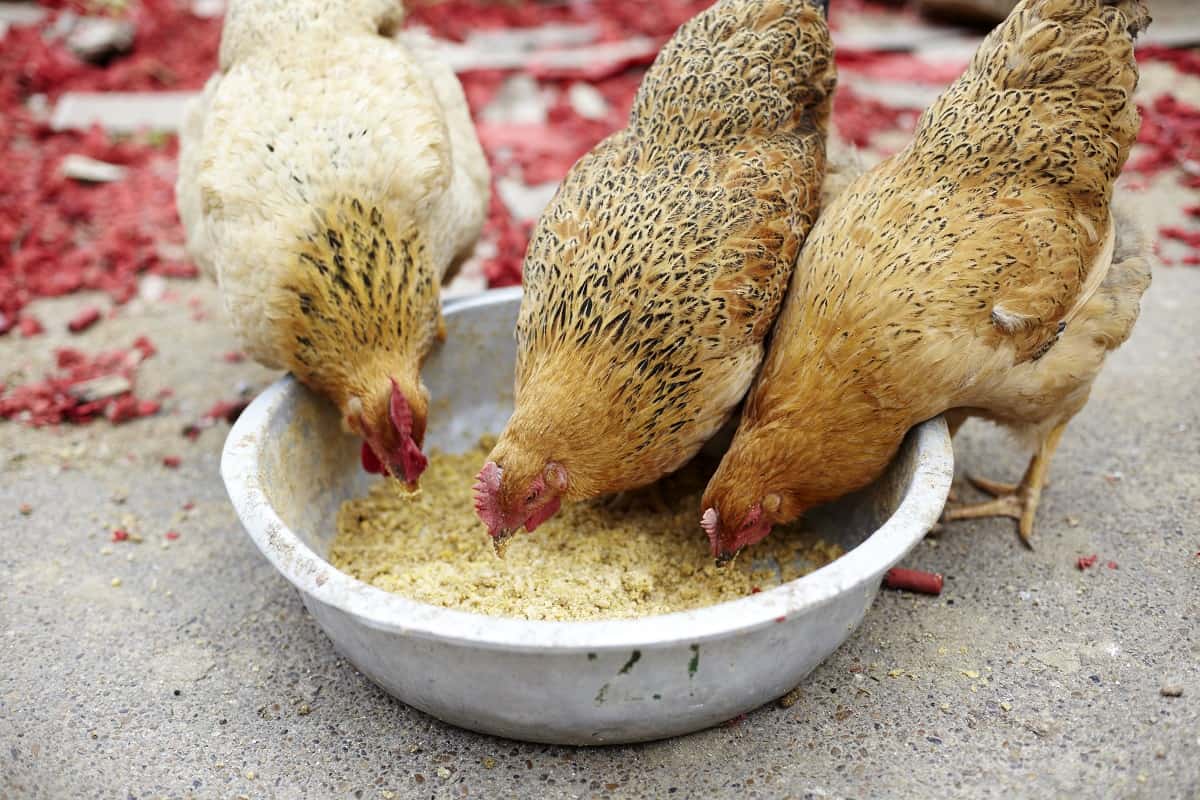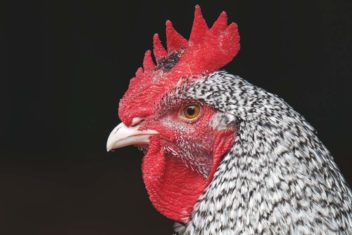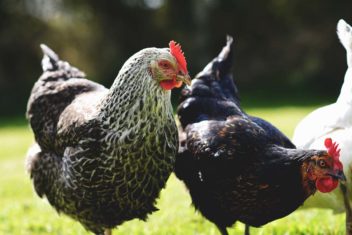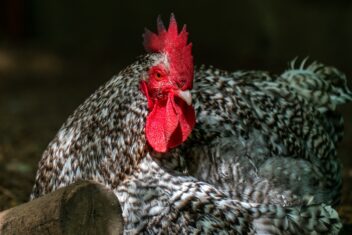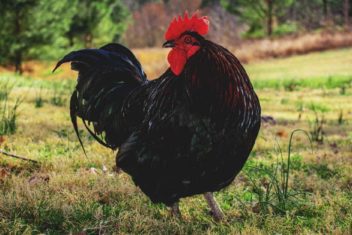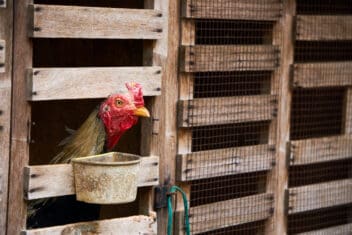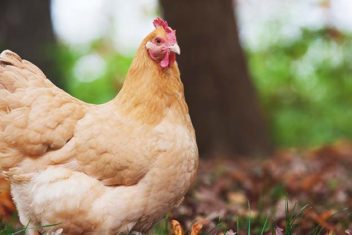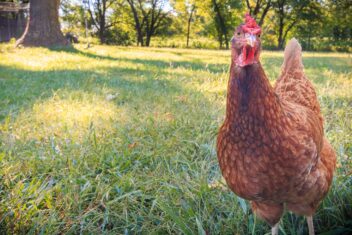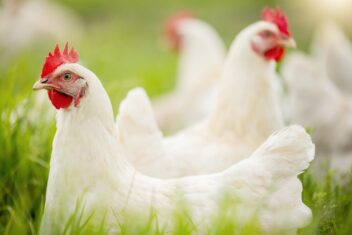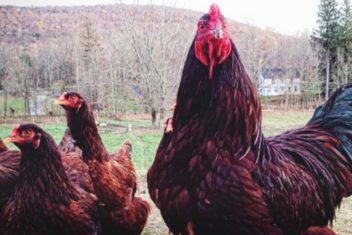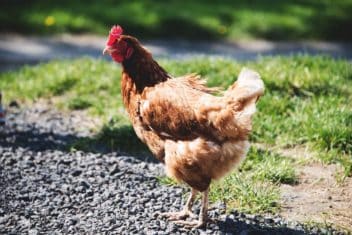Every time I walk into the grocery store (which, thankfully, isn’t all that often), I find myself increasingly frustrated with the way that food producers choose to market their products.
There are all kinds of terms that are applied to eggs in particular. From free-range to cage-free, antibiotic-free, or one of the most ambiguous, “all-natural,” you will see it all.
There are plenty of terms that are slapped onto egg cartons to entice shoppers to buy.
One of the most confusing, in my opinion, is the phrase “vegetarian eggs.” For a while, I had no idea what this meant. Eggs for people who are vegetarian? Don’t all eggs count as vegetarian? They aren’t meat, after all.
After doing some digging, I realized that the terms “vegetarian-fed chickens” and “vegetarian eggs” actually mean something quite different. Here’s what you need to know about this befuddling trend.
What Are Vegetarian Fed Chickens?
Many of the country’s top egg sellers brag that their hens are vegetarian. Is it worth it? You can be the judge of that.
A vegetarian-fed chicken is simply one that is fed a 100% vegetarian diet. The food fed to the chickens that laid your eggs contains no animal fat or by-products. This is a label that you will frequently find on egg cartons from eggs that you buy in a store. More often than not, these chickens were raised in confinement on a special vegetarian-blend feed.
As a USDA-designated term, the good news is that “vegetarian,” when applied to eggs as a marketing term, is regulated. Unlike confusing terms like “all-natural” which are not regulated, all farmers who choose to use the term “vegetarian” have to conform to certain labeling requirements.
The phrase “vegetarian fed hens” is used by many sellers, yet it’s still quite confusing. Although it gives customers the impression that they are buying healthier eggs, that might not be the case.
If you raise your own chickens, you may find that it’s practically impossible to raise them in a vegetarian lifestyle, too.
Why Would You Want Vegetarian Fed Chickens?
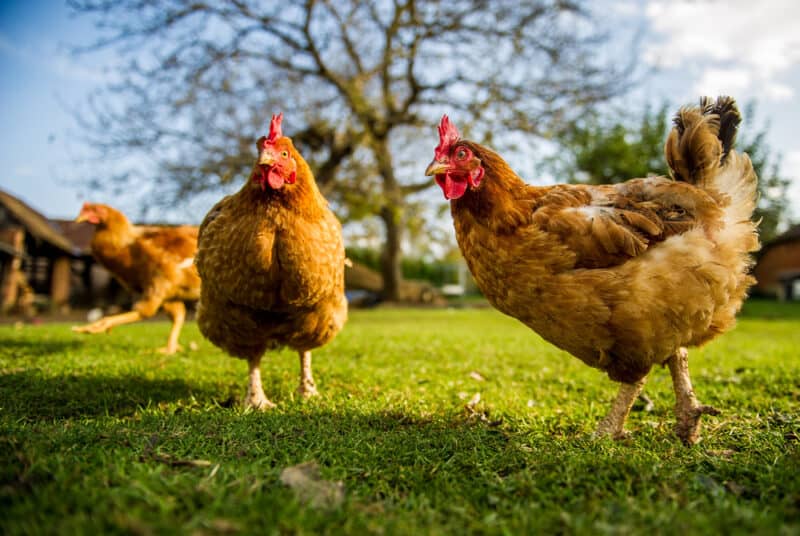
1. “Vegetarian” Eggs
Are you a vegetarian? There are plenty of reasons why we, as humans, choose to consume plant-based diets. For many vegetarians, eggs are vital when it comes to providing them with the protein they need to be healthy. You might assume, as a vegetarian, that you need to purchase vegetarian eggs to adhere to your dietary restrictions.
2. Different Taste
You are what you eat, right? Some people claim that vegetarian-fed chickens produce eggs that are cleaner and fresher-tasting than their meat-fed counterparts.
3. Animal Byproducts in Chicken Feed
One of the biggest advantages to eating vegetarian eggs is that the hens who laid the eggs were not fed a diet that included animal byproducts.
I am all for allowing a chicken to scratch and peck to find grubs, bugs, and other meaty foods to fill her belly. However, I’m not a fan of a chicken being fed something that she definitely would not eat in the wild.
It is entirely possible to create a chicken feed that is made solely from plant materials. It can still have all the amino acids, omega fatty acids, and other vitamins that your hens need to be healthy.
Many commercial feeds, however, contain leftovers like whey, meat meal, bone meal, feather meal, and poultry offal meal. In some cases, “animal byproduct” might refer to things like rendered road kill or even euthanized animals.
Not necessarily something that’s yummy to think about – especially when you start thinking about how Mad Cow disease came to be!
Although it’s somewhat like comparing apples and oranges (cows are herbivores and should not be eating any kind of meat – especially other cows) the idea can still admittedly turn your stomach.
These animal by-products contain lots of protein, but may not be totally palatable especially if you’re trying to follow a vegetarian diet yourself.
The Problem with Vegetarian Fed Chickens
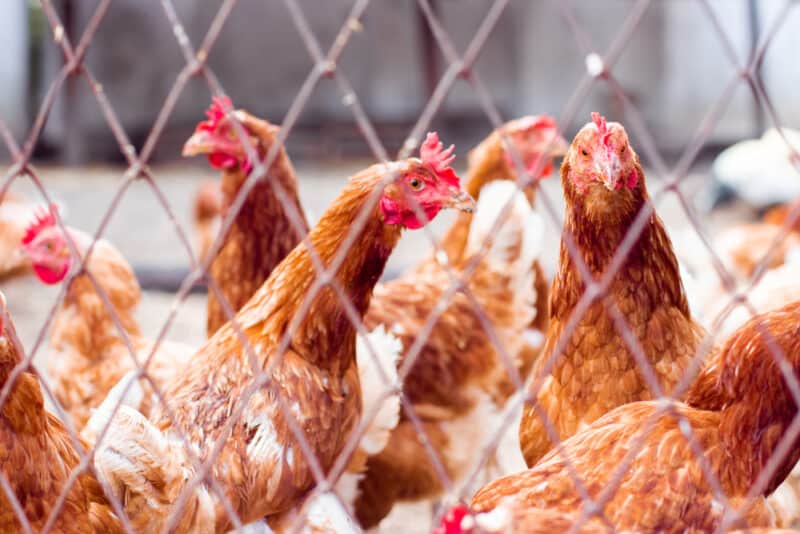
1. Natural Omnivores
Chickens are about as far from natural vegetarians as you can get! In its natural environment, a chicken is going to eat all kinds of outdoor goodies, including grasshoppers, mealworms, black soldier fly larvae, and much, much more.
Obviously, these foods aren’t vegetarian. Chickens need some insects and meat bits if they’re going to be healthy. Where else are they going to get their protein from?
2. Free Range Diet is Hard to Monitor
If you raise your own chickens and you allow them access to the outdoors – as you should, as this is one of the best ways to keep your flock happy and healthy.
How are you going to prevent them from eating bugs and other meat bits? Are you going to run to each chicken and chide it each time it nibbles a bit of grasshopper?
Probably not.
In fact, vegetarian-fed hens are almost always raised in confinement without access to the outdoors. This is the only way to guarantee that they do not consume any meat.
In most cases, raising chickens in this environment is not only not ideal, but it’s inhumane. Allow your chickens access to the great outdoors – and to their own natural diet habits – and they’ll be much better off.
3. Amino Acid Deficiencies
Another major issue with raising vegetarian-fed chickens is that of amino acid deficiencies. Remember, chickens are natural omnivores. When they eat a vegetarian diet, they fall short on an essential amino acid found in a protein named methionine. Without it, they can become extremely sick.
Not only that, but a deficiency in methionine can cause chickens to become aggressive toward each other. To put things delicately, when chickens are deprived of protein, they’ll try to get it in any way they can – even if that means cannibalizing other chickens.
To get around this, many products will feed their chickens a ration of soybeans and corn that is supplemented with synthetic methionine. This chemical is allowable under organic standards at levels you might find concerning for a carton of eggs bearing the organic moniker.
However, the levels of artificial methionine are still so low that chickens often experience health consequences and early death as a result.
The One Exception
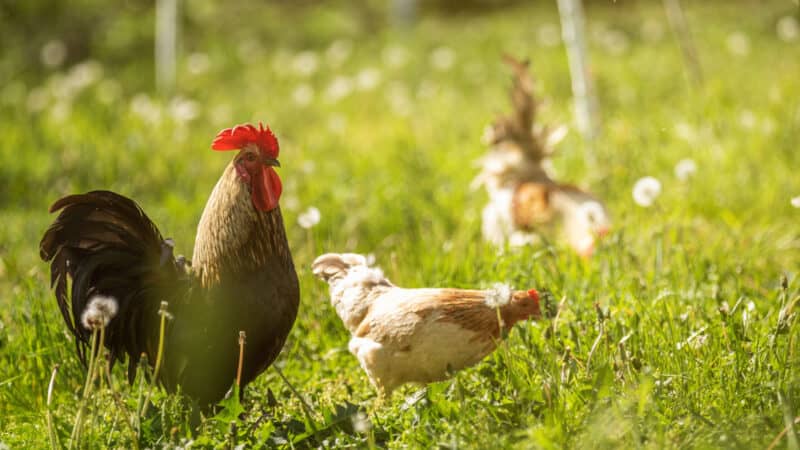
In most cases, I don’t personally advocate for raising chickens on vegetarian diets. It’s not natural, and it’s not healthy for the chickens, either. Let your chickens be chickens and raise them on pasture.
However, when you’re buying your feed rations, there’s no reason why you have to choose one with animal byproducts if you’re not comfortable with that idea.
Although there’s not a lot of evidence that feeding chickens blood meal, bone meal, or other animal by-products is inherently harmful to the birds, swapping out your regular chicken feed for an organic one should eliminate this concern for you.
Most organic chicken feed should be free from animal byproducts. In addition, most eggs labeled organic were also laid by chickens fed a byproduct-free diet, so choosing an organic feed will help you in that regard, too.
Don’t panic if you continue to raise your chickens on non-vegetarian or non-organic feed.
It might be disconcerting to feed your chickens a blend that’s formulated with animal byproducts. However, remember that chickens are omnivores and it won’t hurt them in any way. Unlike cows, who are herbivores, chickens are meant to eat some meat. It won’t hurt them to have that in their diet.
Should I Feed My Hens a Vegetarian-Only Diet?
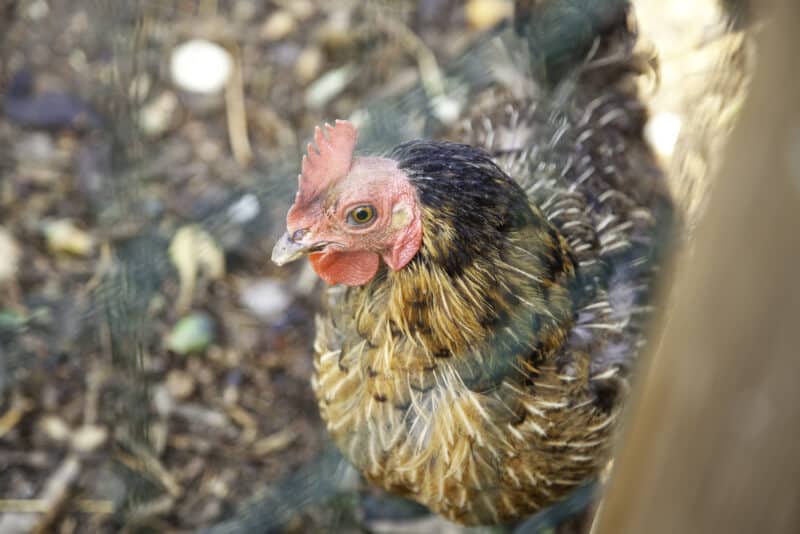
While there’s nothing wrong with choosing a chicken feed that’s free from animal byproducts, don’t fall into the trap of thinking your hens should be restricted to a vegetarian-only diet.
After all, chickens are natural omnivores. A majority of their diet should come from bugs, fresh grass, and other tasty morsels they scratch up on their daily ramblings.
Eggs that bear the “vegetarian-fed hen” label aren’t necessarily better for you – nor are they better for the chickens. Skip this fad and raise your chickens on pasture (rather than in a barn) instead. You’ll both be happier for it!
